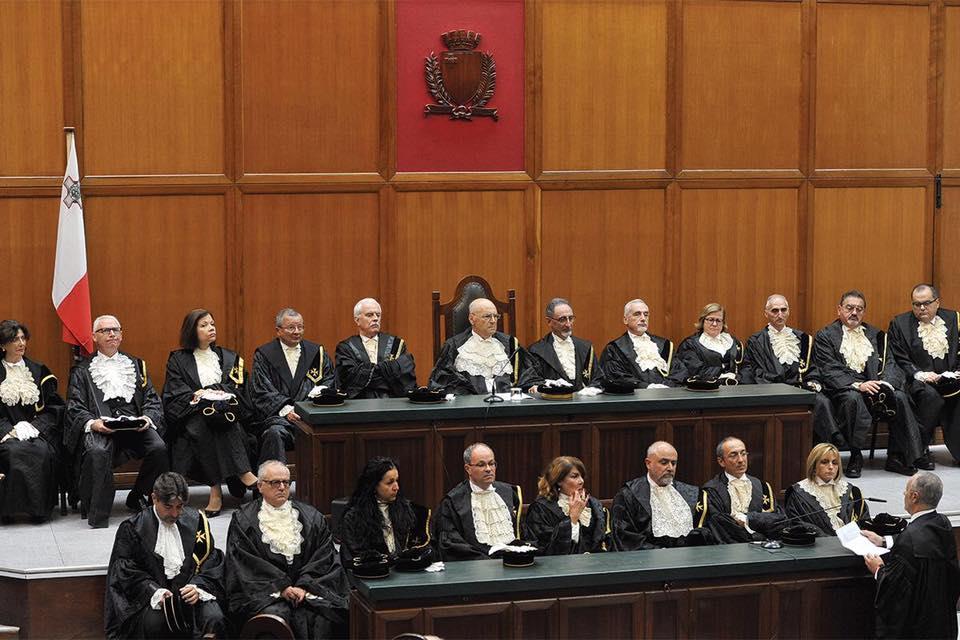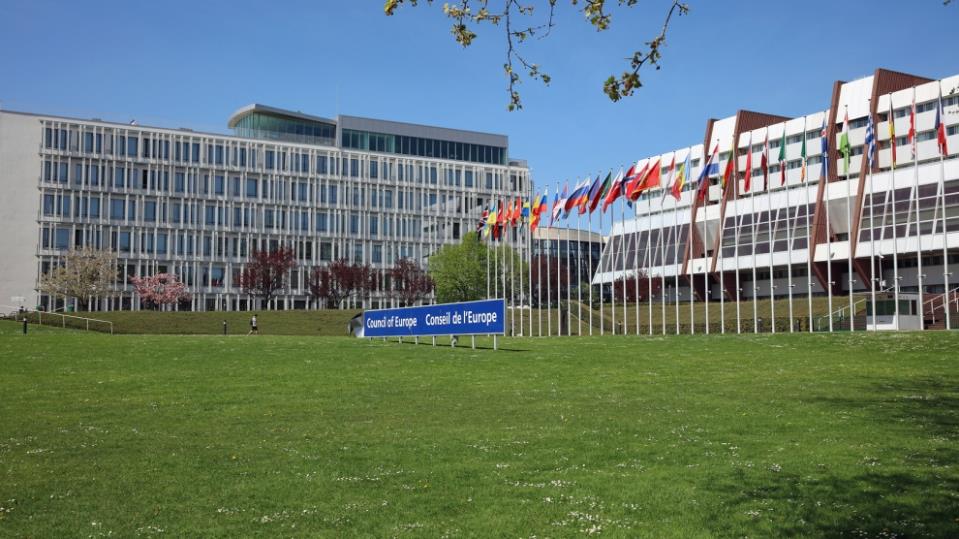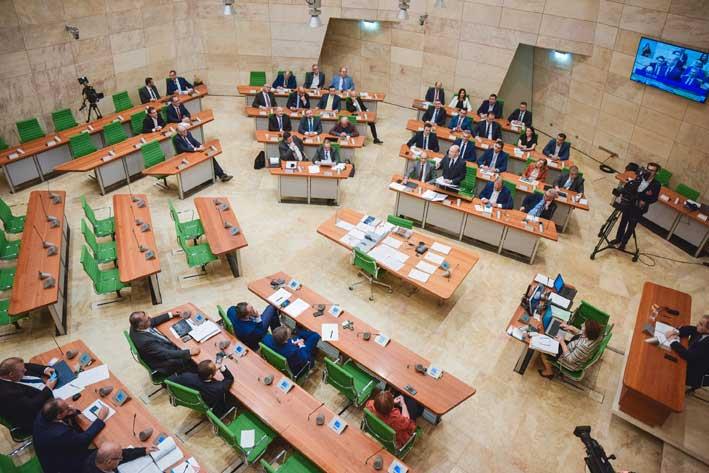The government has lost a lot of its powers, due to the Constitutional reforms implemented on the recommendations made by the Venice Commission, Justice Minister Edward Zammit Lewis, adding that “we were courageous”.
In an interview with The Malta Independent on Sunday, Zammit Lewis provided a detailed understanding behind the implementations of the recommendations made by the Venice Commission in December 2018, which the government presented in a letter to the same Commission last week.
Following a visit to Malta, the European Commission for democracy through the law (Venice Commission), on 17 December 2018, issued an opinion on the constitutional arrangement and operation of powers and the independence of the judiciary and law enforcement, noting a significant lack of checks and balances.
When asked about the delay in issuing these implementations, considering the opinion was published near a year and a half ago, Zammit Lewis replied that some of the proposals in the letter sent by the government, to the Venice Commission, were already being implemented.
He said the elimination of the “double role” of the Attorney General, as a government advisor and prosecutor, which the Commission called “problematic” has already been carried out.
‘It is not easy for any government to restrain or limit its discretion’
Zammit Lewis did concede that “there were other things which were not done.” He explained that time passed and the political situation remained as it was in 2019. In January 2020, there was a new government, with its own priorities, and the situation was politically more stable. One of the Prime Minister’s main mandates was to push through the majority of the reforms of the Venice Commission.

The Minister said they started with those reforms which were a priority, especially including the appointment and discipline of the members of the judiciary. He added that these reforms are historical and without precedent - reforms that were not taken on since Malta’s independence.
“I believe in these reforms, they are good, and can take the country forward as a modern democracy and one of the best democracies in the world.”
Zammit Lewis also noted that all proposals were endorsed by cabinet and although he worked relentlessly since the end of January on these reforms, an internal process of persuasion was necessary. “It is not easy for any government to restrain or limit its discretion.”
Does Malta need to abide by the Venice Commission opinion?
The Minister explained that since we are a sovereign country, we do not answer to the VC, but we signatories to the Treaty of the Council of Europe. “The opinion of the Venice Commission is valued because it is a technical and unbiased opinion that could help us with our reforms. I believe it is a good guidance document but not always. There are some concepts which are not compatible with the Maltese legal traditions.”
Despite criticism laid forward that the government did not consult the public before sending the letter, Zammit Lewis said that consultations were indeed made, even though not through a formal public call.

He believes the proposals are too technical for public consultation but interested parties could give feedback, including civil society, which he added gave “good feedback”.
‘Speed is of the essence - Malta’s reputation needs to be strengthened without delay’
Zammit Lewis said speed is of the essence because: (1) these reforms need to be done; (2) the report is dated December 2018, and; (3) because Malta’s reputation needs to strengthen without delay.
When asked if the Opposition was consulted on the implementations noted in the letter, the Minister said there was agreement on the appointment of chief justice. With regard to the principles on the judiciary from the same proposals put forward by the PN, it appears the principles are in agreement but there was no memorandum, he noted.
“I wished to do more with civil society. They had more good proposals and with what we sent, you can see many of their proposals were implemented. This was not done formally because I wanted to speed things up.”
Venice Commission to speak directly to interested parties
Zammit Lewis explained that an agreement was reached with the Venice Commission in that they would communicate directly with civil society, in particular with Republikka, the Opposition, and Chamber of Advocates.
When asked why the government did not heed the advice of the Venice Commission in that judicial candidates be ranked, Zammit Lewis said that those he consulted with were adamant they did not want it. He compared the ranking of the candidates with a beauty contest, saying it does not make sense.

“There are certain requisites, like integrity, which would be difficult to rank. I believe an appraisal report including personal details, like the financial state of affairs. We believe that if we applied, the ranking system may not apply out of fear that they will be ranked low. Our country is small and close-knit.
The government also noted that there would be three candidates proposed to the President. Asked why three candidates were being proposed, leaving the decision with president, Zammit Lewis rhetorically replied, “why shouldn’t the president have discretion?” He added that ever since he was a child, all presidents have always diligently carried out their duties.
‘We are not against a wide debate on the method of appointing President’
The President, as it currently stands, can be appointed and removed by a simple majority, although many, including the Venice Commission, have stressed that President should be appointed by a two-thirds majority to allow for a parliamentary resolution.
To this Zammit Lewis noted that this is the first time since Independence the President is given executive powers. He also noted that to a certain extent, there is already a degree of agreement on the appointment of the President between both sides of Parliament.

The Minister, however, again pointed out that “these reforms are not the only reforms we will do.” The government is not against a wide debate on the appointment of the President through different methods, including qualified majority.
Another implementation which was not heeded by the government was the Venice Commission's recommendation that the removal of a judge or magistrate should not be imposed by a political body.
‘Government has no interest to hold power on the removal of judicial member’
While the removal of a member of the judiciary will be recommended by the Commission for the Administration of Justice, and the decision of the same Commission will be subject to an appeal before the Constitutional Court, the ultimate decision still rests with Parliament.
The Minister explained that the Association of the Members of the Judiciary took this position and that they have a legitimate exception in that they were appointed on the current legal regime.
“As a government, we are ready to do exactly as the Venice Commission recommended but I owe them in that they are allowed to speak to the Commission directly. We are ready to make the changes, to show we have no interest that parliament holds power over the removal of members of the judiciary.”

Again, with regard to the harsh criticism that too many powers are vested in the Prime Minister, Zammit Lewis said that “you have to start from somewhere - this is a genuine effort to start.”
He explained that in Malta and other systems like ours, the Prime Minister is the centre of power, "because we have a prime ministerial system. We have now started restricting, or even removing, discretion from the Prime Minister. There is more to be done but we are going to start with these reforms and implement them."
“The Prime Minister has legitimate political and democratic power. One would be stupid if they think they can lead a country and the Prime Minister elected would have all his powers removed. That would not be a democracy. The point is how the powers are used.”
Interview photos: Alenka Falzon